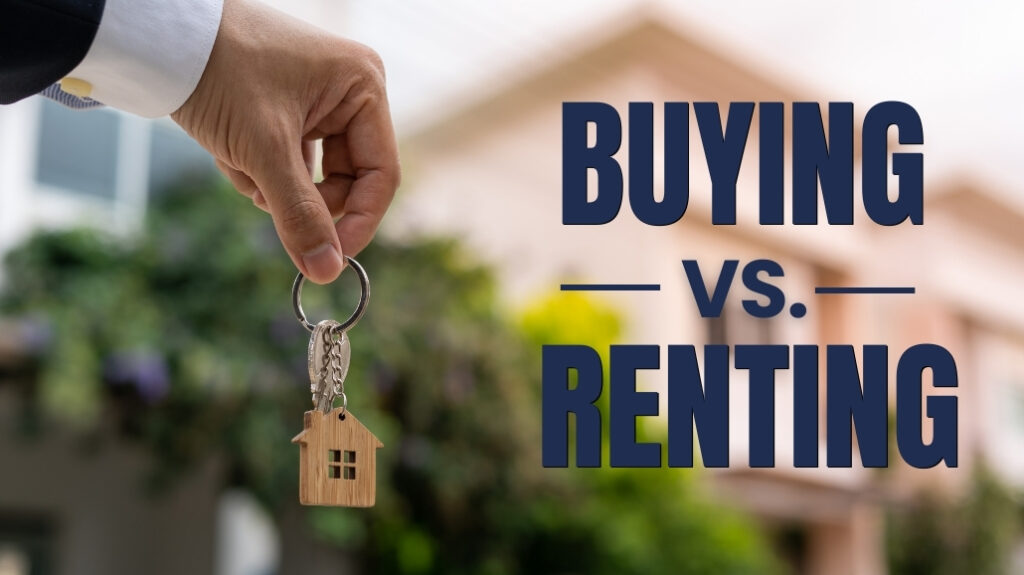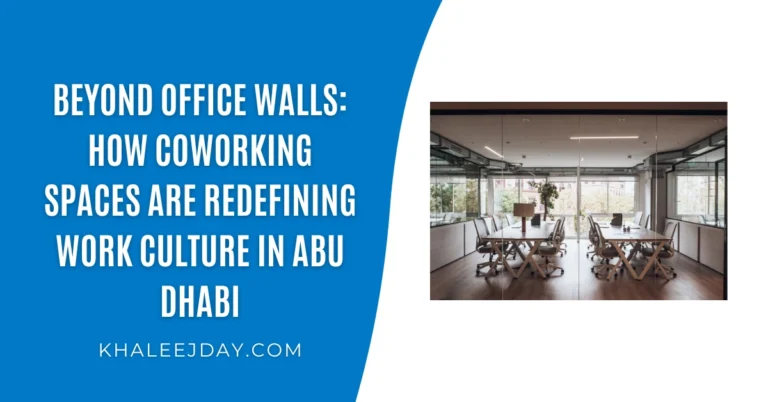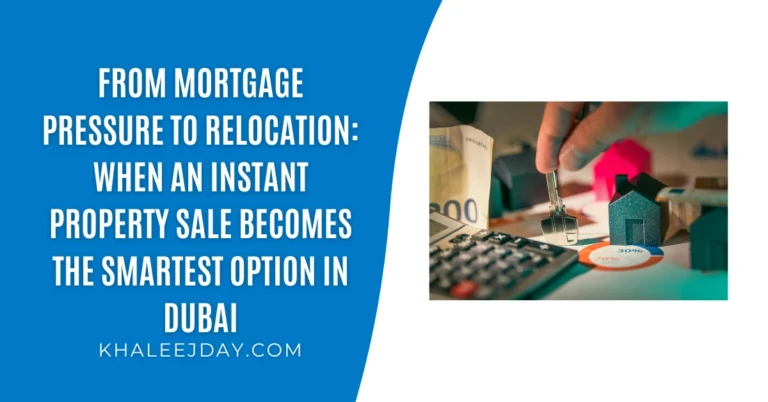Buying vs. Renting in the UAE: What’s the Smarter Move in 2025?
This guide provides you with important information on the topic and for practical guidance. Also, you can connect with reputable real estate companies in UAE to find options firsthand.

Imagine this. You’re enjoying your hot coffee on a calm evening on your balcony somewhere in UAE, and in that relaxing moment, a question arises in your mind: Should you keep renting the place that feels like home, or finally take the step to buy your own happy space? It’s not just about the financial choice, but it also depends on your preferred lifestyle, freedom, and sense of belonging.
This guide is grounded in 2025’s reality, strengthened with global knowledge, local details, and a human touch. So, let’s take you on a guided tour that may help you to make your decision about buying vs. renting in UAE.
1. Realities on the Ground: What’s Happening in 2025?
As Dubai is the most popular city in the United Arab Emirates, it is important to have a discussion about the pros and cons of buying vs. renting in Dubai, particularly at a time when the city’s real estate market is breaking records. A reliable real estate agency can help you know the advantages and disadvantages and select the option that is best for your needs.
Property Prices Have Soared—How Much?
The real estate market in Dubai has been flourishing. Since February 2021, real estate prices have increased by roughly 75%, bringing the market close to its pre-2008 peak. As a result, the momentum carried over into 2025: 50,485 residential units sold in Dubai in H1 alone, bringing the total sales to AED 151.8 billion, a 46% increase from the previous year.
In just six months (January–June 2025), average prices increased by 8.4%, with villa rates rising even more. Prices rose from AED 1,484/sq ft to AED 1,609/sq ft—an overall 16.1% year-on-year rise.
In Q2 2025, values were up 23.9% year-on-year, with villa capital surging 180.1% since 2021. Even apartments—though tamer—grew 73.3% over four years, with standout communities like Palm Jumeirah more than doubling in value.
Rent Is Rising, But Salaries Aren’t
In early 2025, rents increased by 16%, but salaries remained the same. Due to this, middle-class renters are under pressure, which limits their financial flexibility and makes budgeting challenging.
Rapid Sales, New Supply, and What’s Coming
Despite the price surge, supply is being built quickly. There were 20,000 new units in H1 2025, 70,000 more by the end of the year, and over 200,000 more planned through 2027. However, real estate deals reached AED 51.1 billion in February alone, a 35.5% year-over-year increase.
Meanwhile, market observers also point out that, in comparison to H2 2024, Q2 2025 saw the first price decline since 2022, a slight 0.6% decline. Though the underlying demand is still there, particularly at the high end, forecasts caution of a possible 15% correction later in 2025 as supply catches up to demand.
For developers, this is a complicated process, therefore requiring careful coordination. So, as property prices climb, developers are increasingly bringing construction in-house to control costs and timelines, an indication of supply pressure and urgency.
2. Cost Comparison by Community: Where Renting Still Wins
Recent data shows that in 44 out of 77 neighborhoods, renting remains more cost-effective than buying—especially in areas like Saadiyat Island (Abu Dhabi) and Al Marjan Island (RAK).
But in locations such as Al Reef and Culture Village (Dubai), owning can save you as much as 38% monthly compared with paying rent. Think rent at AED 7,500 vs. mortgage around AED 4,659. Additionally, these pockets also show how lifestyle context is important: when prices, lifestyle, and emotional fulfillment all mesh well, purchasing is at its best.
3. Rules of Thumb: Calculate the Numbers for Your Situation
Although there isn’t the same logic that works for everyone, you can quickly determine whether buying or renting makes more sense in your case by using these tried-and-true guidelines. So, here are the rules experts use — see how your situation compares:
| Rule | Guidance |
| Price-to-Rent Ratio | If the ratio is ≤ 15, buying usually makes sense; between 16–20 may favor renting; above 20, renting is often the wiser move. |
| 30% Income Rule | A widely accepted guideline suggests keeping your housing (rent or mortgage, plus utilities) at ≤ 30% of your gross income. |
| Housing Stress Benchmark | Spending 30% or more of your income on housing puts you in “housing stress,” and it’s considered extreme once it exceeds 50%. |
| 18-or-Less Rent Ratio Rule | Some financial bloggers suggest that a rent ratio of 18 or less is a marker that buying may be financially viable. |
| 4% Rule & 5-Year Rule | While there’s no single authoritative source like Investopedia for every rule, financial planners often recommend that if annual homeownership costs exceed 4% of the purchase price, renting might be smarter, and that if you plan to stay under 5 years, renting generally costs less. These are practical heuristics common in financial advisory circles. |
4. The Human Side: What Really Matters?
Now, let’s move beyond numbers. These decisions are deeply human, shaped by feelings, values, and life chapters.
Renting: The Gift of Flexibility
- Freedom to move with your job or family shifts.
- A smaller upfront cost reduces financial strain.
- The ability to test neighborhoods before choosing a forever spot.
Buying: Ownership Means Belonging
- You can personalize your space, renovate, and build memories.
- Predictable monthly costs (if you lock in a rate) offer stability.
- Instead of paying someone else’s mortgage, you’re accumulating equity.
Ultimately, when comparing the advantages of buying a home vs renting, it all boils down to how well your lifestyle, financial objectives, and sense of community mesh. Therefore, pick the option that feels appropriate for the life you wish to build and that also fits within your budget.
Off-Plan: A Path to Appreciation
Off-plan buying—however, when done with reputable developers—can offer lower initial costs, flexible payment schedules, and potential for capital appreciation by handover. But it’s a long game: delivery delays and market shifts are real risks. So, if you’re anchored in the UAE long-term, off-plan may offer both personal and financial upside.
5. Looking Ahead: Dubai’s Outlook for Late 2025
If we consider only buying vs. renting in Dubai, this city is at the top for lifestyle, opportunities, and global appeal; the choice becomes even more intriguing. Furthermore, what’s next? Experts anticipate:
- Moderated price growth: Another 10% rise is anticipated by year-end, though paced more gently than in previous years.
- Supply catching up: The massive pipeline of nearly 243,000 new residential units expected by 2027 should help stabilize prices and rents — particularly as apartments make up 80% of this upcoming inventory.
- Demographic pressure remains: Dubai is among the top 10 costliest cities globally, particularly for the wealthy, adding pressure to affordability for middle earners.
- However, Dubai’s international appeal, investor-friendly legislation, and strategic infrastructure keep bringing in money and improving long-term value.
Here are the additional costs above the listing price if you plan to purchase during this anticipated slowdown. The next heading covers it all for you.
What It Costs to Buy in 2025 (Beyond the Sticker Price)
Consider transaction fees, financing costs, and recurring charges when purchasing a home in the United Arab Emirates. Here is a reasonable basket for Dubai (the numbers are only estimates; the precise amounts will vary depending on the property, lender, and emirate):
One-Time, Upfront & Transfer Costs (Dubai)
- Dubai Land Department (DLD) transfer fee: 4% of purchase price (Plus admin/trustee fees).
- Agent commission: commonly 2% (+ VAT).
- Mortgage registration fee (if financing): 0.25% of the loan amount (+ small administrative fee).
- Bank processing/arrangement fee: often up to 1% of the loan amount (+ VAT).
- Valuation fee: often AED 2,500–3,500.
- Trustee/admin fees: typically AED 2,000–4,000 trustee + admin AED 540–580 (ranges vary).
Ongoing Costs
- Mortgage repayments (rate + principal).
- Service charges (building/community maintenance) are often quoted per sq. ft./year; ranges vary by community and amenities. (Developers or brokers can provide current rates.
- Utilities, insurance, maintenance (villa owners should add a buffer for landscaping, pools, AC, etc.).
Financing Rules Snapshot (Owner-Occupier, Completed Units)
- Expats: commonly up to 80% LTV up to AED 5M; above that, 70% is typical (Banks and products vary).
- UAE nationals: often 85% up to AED 5M; 75% above.
- Off-plan: 50% LTV cap is a widely cited rule of thumb.
Note: Lenders price off EIBOR-linked rates, your profile, and the property. So, always request a key facts statement from the bank and compare the APR, early settlement, and re-pricing clauses.
What It Costs to Rent in 2025
Renting front-loads convenience and flexibility:
- Upfront: Usually a security deposit (e.g., 5%–10% of annual rent), Ejari registration, broker fee (often 5% of annual rent; varies), and cheques or scheduled payments.
- Annual increases: In Dubai, your landlord’s allowed increase is capped by the RERA rental index—generally 5–20% depending on how far your current rent is below the benchmark. However, you can check eligibility via the official index.
- Ongoing: Utilities, minor maintenance (depending on contract), and optional contents insurance.
Pros of renting: Lower commitment, easy to change neighborhoods or unit type, live in a higher-end place without the ownership down payment, zero exposure to price dips.
Cons of renting: No equity build, exposure to rent increases per the index, and moving costs if you relocate frequently.
Buying Smart in 2025
- Mortgage shop like a pro: Compare APR, early settlement, lock-in periods, re-pricing formulas, insurance add-ons, and total cost of credit—not just the headline rate.
- Budget all fees upfront: DLD 4%, bank fees, valuation, trustee/admin, agent commission, and 0.25% mortgage registration if financing.
- Service charge reality check: Ask for the last two years’ service-charge statements and any planned increases or special levies.
- Developer reputation: Prioritize build quality, timely snagging responses, and community facilities upkeep.
- Exit strategy: Choose liquid neighborhoods/buildings (historically strong demand, good transport, close to schools/clinics/malls).
Renting Smart in 2025
- Use the official rental index before negotiating renewals or signing. It shows whether—and by how much—your rent can legally increase.
- Cheques vs monthly: Some landlords now accept more flexible payment schedules, so negotiate terms that match your cash flow.
- Read the contract: Clarify maintenance responsibilities, chiller policies, and early termination terms.
- Broker due diligence: Work with RERA-registered agents; verify unit ownership.
- Try before you buy: Switching communities as a renter is a great way to find your “forever” zone.
Dubai vs. Abu Dhabi vs. Sharjah: Key Differences (Snapshot)
Additionally, let’s discuss some important points about the major destinations that are the top preferences when an investor looks to buy a property in the UAE:
- Dubai
- Pros: Deep liquidity, global demand, rental index clarity, broad choice for end-users and investors, and property-linked residency paths.
- Costs: DLD 4% transfer; solid fee structure; service charges vary widely.
- Pros: Deep liquidity, global demand, rental index clarity, broad choice for end-users and investors, and property-linked residency paths.
- Abu Dhabi
- Pros: Often steadier price behavior in family areas; strong infrastructure and schools.
- Costs: Transfer fees and registration differ (commonly 2% on transfers; confirm per project). Some zones define expat ownership as apartments/floors (not land) on long-term leases.
- Pros: Often steadier price behavior in family areas; strong infrastructure and schools.
- Sharjah
- Pros: Relative affordability, a growing set of projects allowing foreign ownership under specific frameworks.
- Costs: Property registration (transfer) fee generally stands at 2% of the property value, a notably lower rate compared to Dubai. During events like ACRES 2025, buyers could get this fee discounted even further—sometimes halved.
- Note: Rules differ by project and zone; confirm current eligibility, tenure type, and transfer/registration fees before committing.
Hopefully, these snapshots help you understand how buying vs. renting in Dubai compares with Abu Dhabi and Sharjah, so you can make a well-informed choice.
Visas & Property: Why It Matters to the Buy vs Rent Call
If residency status is part of your calculus, property can play a role:
- A 2-year investor visa in Dubai is commonly linked to an AED 750,000+ property value (with specific conditions, especially for mortgaged units).
- Golden Visa (10-year) is commonly associated with AED 2M property investment in Dubai—attractive for long-term planners (subject to eligibility rules and documentation).
Tip: Treat visa benefits as icing, not the cake. Buy only if the housing decision stands on its own financial and lifestyle merits.
You can take help from real estate companies in UAE for more detailed research on the real estate market. This guide covers everything, and if you’re ready to make an informed move—whether buying, renting, or exploring off-plan. 3G Real Estate, a reputable real estate agency in the UAE, can help you compare options, crunch the numbers, and secure the smartest deal for your future.
Final Thoughts: Your Journey, Your Decision
When deciding what’s best for you, understanding the advantages of buying a home vs renting in Dubai can guide your next move with confidence. In the end, here’s what matters:
- Staying long-term? Buying might build equity and stability, possibly paying off in prime areas.
- Need agility? Renting keeps your options open, with lower upfront costs.
- Love numbers? Dive into price-to-rent, income percentage, and cost vs. benefit rules above.
- Love dreaming? Off-plan options can give you a future home and an investment edge—just pick wisely.
So, are you all set to make the smarter move? Let’s turn market knowledge into your next big win.






